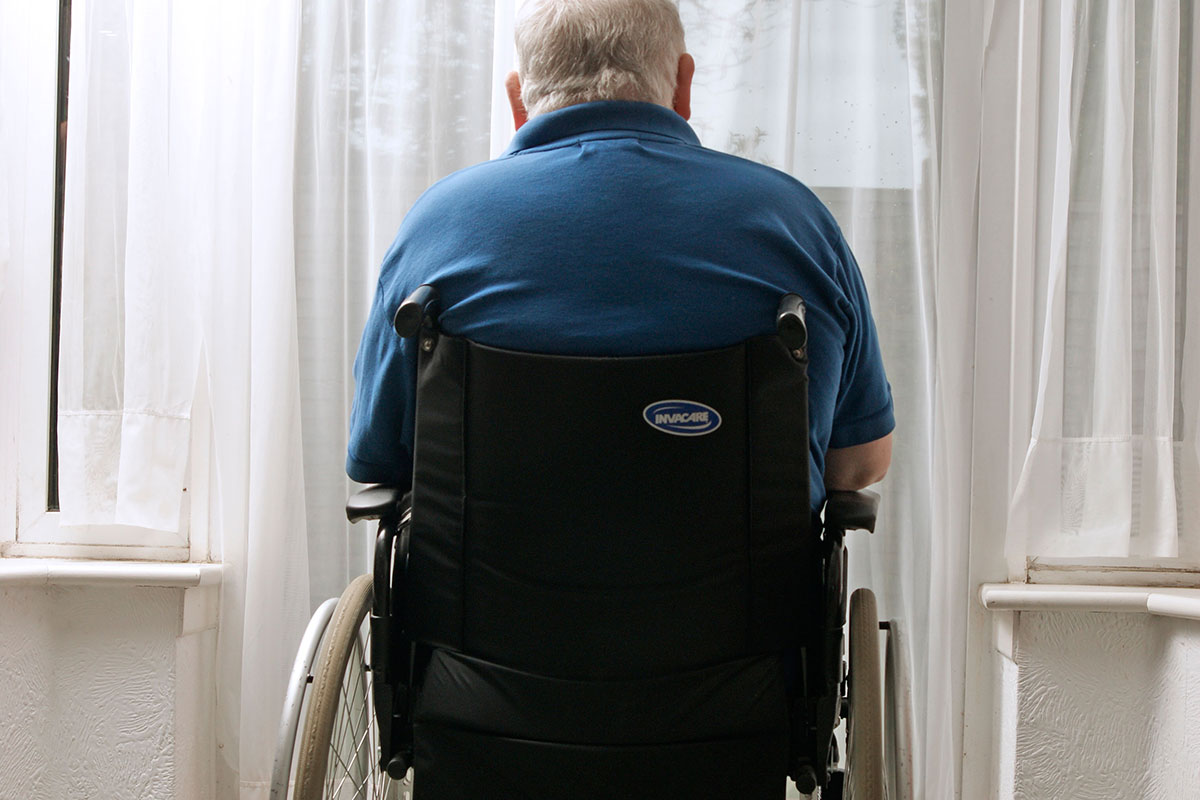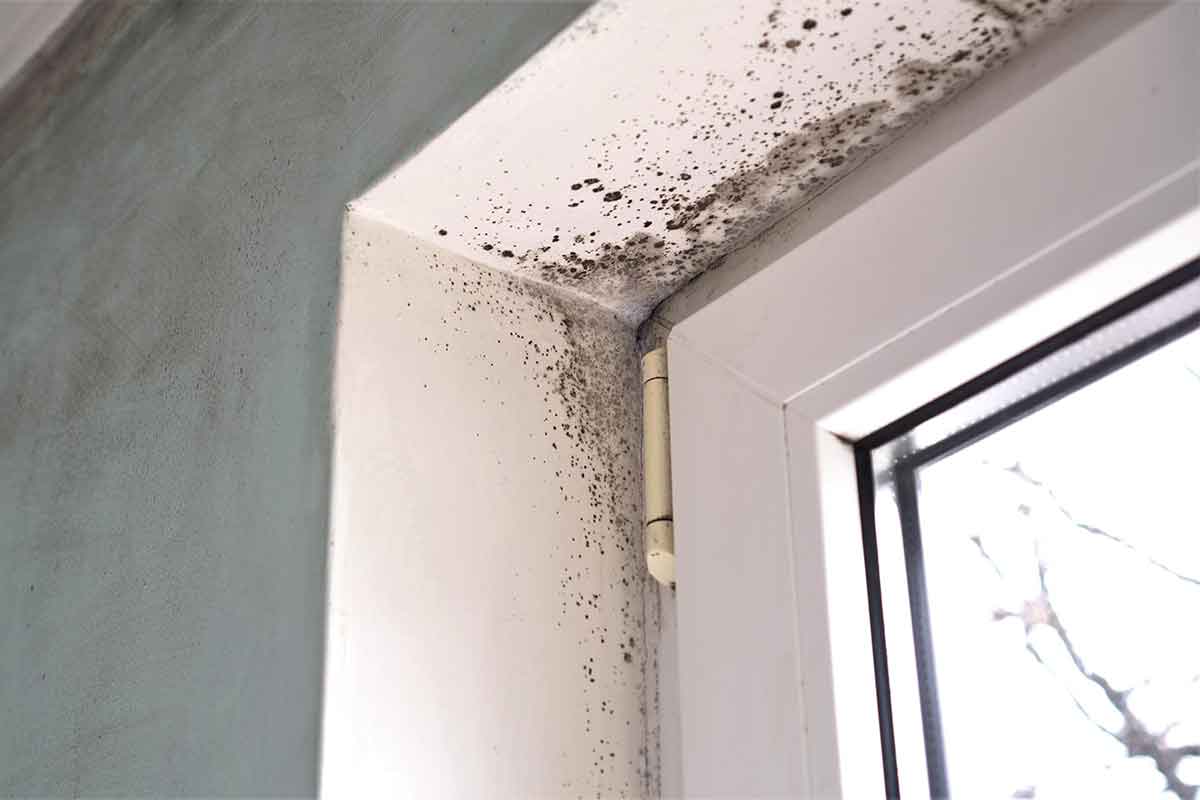You are viewing 1 of your 1 free articles
Ombudsman slams London council’s housing service for ‘culture of apathy’ after special investigation
A special investigation by the Housing Ombudsman has found a “culture of apathy” at a London council that has led to a “distinct lack of ownership, accountability and intrinsic motivation when handling complaints”.
Where shortfalls were identified at Haringey Council, the watchdog found “no evidence” of learning to prevent failings reoccurring, as well as “little evidence of contrition or a resolution-focused approach to complaint-handling”.
The ombudsman launched a special investigation into the council in January over concerns about its approach to leaks, damp and mould. It upheld more than three-quarters of cases determined between April 2021 and January 2023 where those issues formed part of investigations.
The landlord also featured in the Housing Ombudsman’s 2021 Spotlight report on damp and mould, where the worst-performing landlords were revealed.
The special report also followed the watchdog issuing a complaint-handling failure order to the landlord in December 2022 regarding its approach to compensation, compliance with orders and handling of complaints.
Haringey Council owns 15,234 homes, which were managed by its ALMO, Homes for Haringey, until mid 2022 when housing management services were brought back under the direct control of the authority.
Despite this, the Housing Ombudsman found that key policies have not yet been reviewed and are still in the name of the ALMO.
In December 2022, the landlord agreed that its compensation policy needed reviewing, but this still has not happened, it said.
According to the report, the council described the challenges of bringing the housing management services back under direct control.
“Although over 600 staff transferred from the ALMO, there has been significant restructuring and staff changes, with further restructuring planned, including the corporate and housing teams.
“The landlord has acknowledged that these changes have resulted in ‘corporate memory loss,’” the report stated.
The ombudsman said the case of Haringey Council is “important learning” for other landlords looking to transition from an ALMO, or any other significant structural change.
It added: “Corporate knowledge should be captured before it is lost indefinitely.
“The landlord has explored how much of the current issues are cultural, how much is due to resourcing and how much is due to leadership. The likelihood is that there is an interplay between all three.”
The watchdog said the issues, which may have led the council to decide to bring the ALMO back under its direct control, have “not been addressed and may have been compounded because of a legacy of poor records and information”.
Special investigation
The special report is formed of 32 individual investigations. The ombudsman made 77 findings across the cases, 18 of which involved severe maladministration, mostly for major repairs, damp and mould and complaint-handling. The overall uphold rate was 82%.
In the cases monitored, the watchdog ordered Haringey to apologise to 19 residents and pay more than £50,000 in compensation.
In one case investigated by the ombudsman, the landlord withdrew all services from a resident for a year after reports of unacceptable behaviour. The resident disputed this and the council could not provide supporting evidence, yet it continued to withdraw all services, including not carrying out repair works.
The ombudsman has identified eight key themes and set out a series of recommendations for Haringey Council.
The themes include leaseholders, disrepair, damp and mould, vulnerabilities, unreasonable behaviour policy, knowledge and information management, complaint-handling, and compensation.
Leaseholders
The ombudsman said it saw cases where Haringey did not proactively manage external repairs and the leaseholder was forced to employ private contractors to make their home safe while they waited for the landlord to act.
“The handling of leaseholder complaints involving repair issues has been extremely poor.
“It has also been slow to support residents with insurance claims and placed undue onus on the resident to facilitate these, resulting in financial detriment to leaseholders,” according to the report.
The ombudsman has recommended a new policy for leaseholder complaints to encourage improved redress.
Disrepair
The report included a case study on disrepair where a man was left with a leaking roof for over a year, leading to damp and mould.
The disrepair led to the resident having trouble breathing easily. He told the council he suffered from asthma, which he said was becoming worse because of the damp and mould caused by the leak.
He made an insurance claim for the damage to his kitchen, but the insurer told the council it would not pay for a replacement kitchen until it finished the repairs. Haringey put up scaffolding, but did not carry out any repairs or respond to the insurer’s claim correspondence.
The claim was rejected because the repairs were outstanding for more than 18 months. This also meant a public liability claim would be rejected.
The report explained: “At the time of our investigation, Mr A’s kitchen was still in disrepair and he did not have the resources to repair or replace it.
“We found severe maladministration in the landlord’s response to Mr A’s reports of the leak and maladministration in its complaint-handling.
“The landlord had repeatedly and unreasonably failed to act or to keep Mr A and the insurer updated. Mr A was left with a damp, mouldy and non-functioning kitchen for several years.
“We ordered the landlord to apologise to Mr A and pay him £6,500.
“We also ordered it to review its repairs procedure, with a focus on ensuring timely communication with residents.”
Overall, the ombudsman found unreasonable delays in the council’s response to reports of disrepair.
“It would delay before inspecting a property after the resident reported a problem, then delay in carrying out necessary repairs, and would be unable to adequately explain the reasons for these,” the report stated.
The watchdog recommended that the council produce a report on the themes and trends emerging from recent complaints regarding repairs and an assessment of why these continue to be brought to the ombudsman.
Damp and mould
Despite featuring in the Housing Ombudsman’s 2021 damp and mould report, the council did not introduce a new policy until April 2023.
“While this new policy adheres to the report’s recommendations, internal guidance is still lacking in many areas, and the ombudsman has recommended the landlord reviews this guidance to ensure it is consistent with its policy,” the ombudsman said.
The report included several case studies involving damp and mould, one which involves potentially serious health hazards.
In one resident’s home, there were structural safety concerns with the roof and foundations, exposed electrical wiring, which had already caused injury, as well as leaks, blocked gutters and brickwork in disrepair causing damp and mould.
The council delayed inspecting the property for several months.
“The landlord’s complaint responses were wholly inadequate, simply listing upcoming appointments with no investigation.
“The landlord’s repairs records were inadequate, hindering any possibility of addressing the complaint properly,” the ombudsman concluded. It also ordered the council to pay £1,400 in compensation.
In another case, a young girl could not sleep in her own bedroom for over two years because of damp and mould. Her mother said the girl suffered serious health issues and the stress of the situation affected her own mental health.
The council failed to respond to her reports of damp and mould. She had contacted Haringey over 20 times and it “only acted after she complained”.
The report said: “Miss N told the landlord about her daughter’s ill health and her own vulnerabilities, but it did not record the information and did not consider them when prioritising the work needed at her property.
“Two years after Miss N started reporting the issues, an internal landlord email said, ‘She has no hot water and no heating inside her property and her property is full of damp and mould, which she’s constantly complaining about.’”
The ombudsman found “significant, unacceptable and inappropriate delays” in the council’s complaint-handling.
It found severe maladministration and ordered the council to pay £3,650 in compensation.
Vulnerabilities
The ombudsman concluded that Haringey “does not always adhere to its own vulnerable residents policy”.
“Despite being mentioned in the policy, there was no evidence of either enhanced support or repair service for vulnerable residents, or indeed any consideration at all of vulnerability within repairs or associated complaints handling,” the report explained.
The ombudsman recommended a review of policies in these areas and for the council to produce vulnerability and safeguarding procedures for housing management and staff.
Knowledge and information management
The ombudsman found a “concerning lack of key documents, jobs being raised and then left open, and a lack of learning.
“Underpinning the landlord’s handling of information, data and records was a cultural acceptance of poor practice.
“This includes a lack of ownership, professional pride and accountability,” the report stated.
The ombudsman recommended the landlord self-assess against its knowledge and information management Spotlight report.
Complaint-handling
The watchdog concluded that Haringey’s complaint-handling “exposes residents to delay, confusion, uncertainty, and unfair treatment”.
It also found that the council’s complaint-handling is not in line with the ombudsman’s Complaint Handling Code.
The ombudsman recommended the council to update its complaint policy, including the removal of Stage 0 and a review of Stage 3.
Compensation
The watchdog found that Haringey is routinely not offering compensation as part of its complaint-handling, “despite clear evidence of service failure and the associated time, trouble, distress and inconvenience”.
In one case it ordered the council to increase its compensation offer from £226 to £1,832.
The ombudsman recommended the landlord to create a new compensation policy that is in line with the Complaint Handling Code and related guidance. It also recommended a new unreasonable policy is created for a new monitoring process introduced to track progress.
Housing ombudsman Richard Blakeway said the findings in the report were “stark”.
He added: “This report also offers salient lessons for other landlords, particularly councils.
“This includes those planning to bring ALMOs back in-house or where leaseholders form a significant part of its responsibilities.
“Too often leaseholders can be failed, with a lack of clarity on roles and responsibilities between landlord and leaseholder.
“These poor outcomes need to end.”
The council’s full response to the report is below.
Haringey Council’s response
Haringey Council said: “We recognise that residents in Haringey deserve the best possible housing services and that is why we brought the ALMO back in-house last summer, as it became clear that we were not managing or maintaining our homes as well as we should have been.
“We take the ombudsman report very seriously and we are determined to learn from the findings to improve the services we provide to the residents of Haringey.
“Among the steps we will take to deliver on the ombudsman’s recommendations, we will:
Update our vulnerability, safeguarding and unreasonable behaviour policies
Strengthen our approach to leaseholder complaints
Improve management of disrepair, damp and mould
Improve knowledge and information management
Update our complaint-handling process and compensation policy
Publish our resident experience improvement plan
“After the ALMO was brought in house, the council established a housing improvement board to provide oversight for improvement across the landlord function, chaired by our chief executive and including senior politicians from across the political landscape.
“We have made an additional investment of approximately £5m into our frontline housing services, including £2.8m to increase capacity in our repairs service so that tenants do not wait long periods for issues to be resolved.
“We are reviewing our complaint-handling process to refine our policies, introduce a case management system, upskill our staff and ensure we adopt a culture of learning from complaints.
“We are determined that this work will provide our tenants and leaseholders with high-quality services and safe and secure homes.”
Sign up for our asset management newsletter
Already have an account? Click here to manage your newsletters












